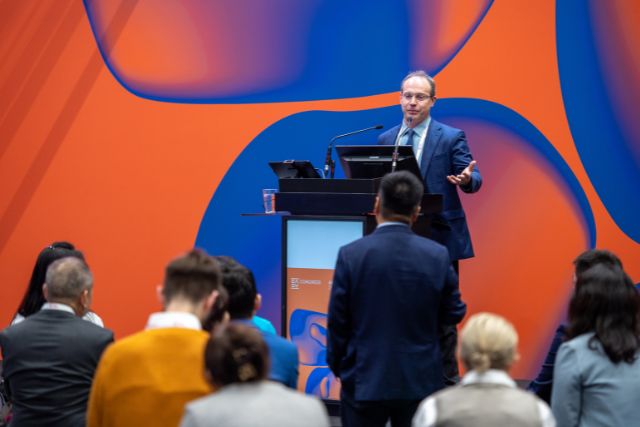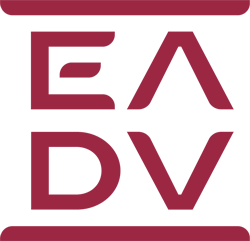Late breaking abstracts
The EADV Scientific Committee invites Authors to submit their late breaking abstracts for consideration and inclusion in the “Late breaking news sessions” that will take place during EADV 2026 Congress in Vienna.
Key dates and deadlines
Positively selected abstracts will be presented orally at the “Late Breaking News” session, contributing to the cutting-edge content of EADV 2026 Congress Scientific Programme.
- Submissions opening 12 August 2026
- Submissions closing 7 September 2026
- Notifications date 14 September 2026
Submission criteria
Scientific data and results included in the late breaking abstract submissions must be new and unpublished. No encore abstract submissions will be accepted for late breaking news session
Fees
Please note that the submission of each late breaking abstract has an administrative cost of 100€. The submission process can only be finalised with your payment of said amount to the EADV.
Please be aware that authors of rejected, incomplete or wrongly submitted abstracts will not be refunded and will not benefit from an oral presentation during the EADV Congress.
Abstracts evaluation process
The EADV Scientific Programming Committee (SPC) will carefully review each late breaking abstract and select the best ones submitted (assigning oral presentations based on a predetermined, limited number of slots).
Selected abstracts presentation mode
The author selected as Presenting author for an accepted abstract will be invited to hold a 15-minute oral presentation (12-minute presentation + 3 minutes for Q&A) during the “Late breaking news sessions” at EADV Congress.
Please note that the author designated as the abstract presenter must attend the EADV Congress in person to deliver the oral presentation.
Please be aware that ePosters cannot be submitted or considered for the Late Breaking News sessions, as these are reserved exclusively for oral presentations.


How to prepare and submit your Late Breaking abstract
To correctly submit your abstract, you must use and fill in the HTML fields available on the submission platform.
Maximum one table/ image file (.jpg, .gif, .png, .bmp, .webp file) can be included as attachment to each of the above abstract sections. Please remember to include details on the image, such as figure notes or references, in the dedicated field present below the image upload section.
When submitting an abstract, the data of the author set as Presenting author must include a valid email contact. Should the abstract be accepted, this contact will be used to communicate the instructions and requirements for preparing the oral presentation.
Additional submission requirements
- Abstracts must be submitted in English.
- The abstract title should not be written entirely in capital letters.
- The size of the abstract is limited to 4,000 characters (spaces included).
Please note that the submission program will automatically calculate the size of your abstract and will not allow submissions that do not fit in the size requirements.
- The abstract title is free of character number limitation.
- Tables and figures (graphs) are allowed, and they are not taken into consideration for the character count limit.
- Pictures of patients and body parts are NOT allowed for inclusion in the abstract body. Abstracts containing these kinds of pictures will be rejected.
In case you might have additional queries on the topic of late breaking abstract submissions, contact the EADV Scientific team.
